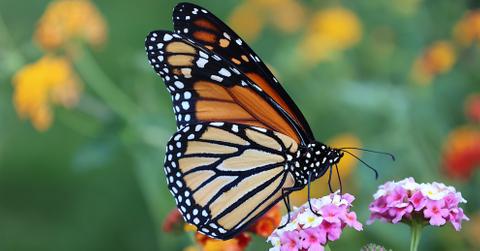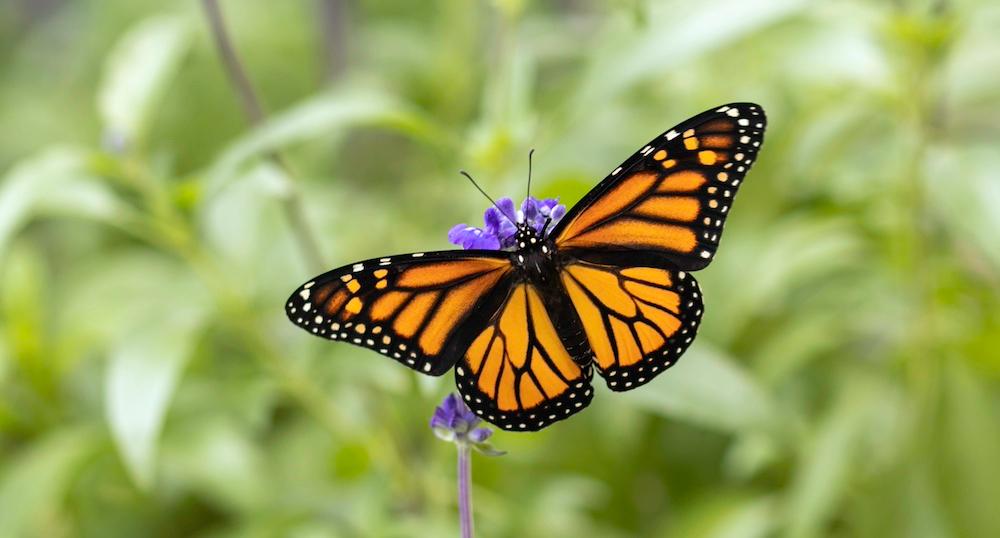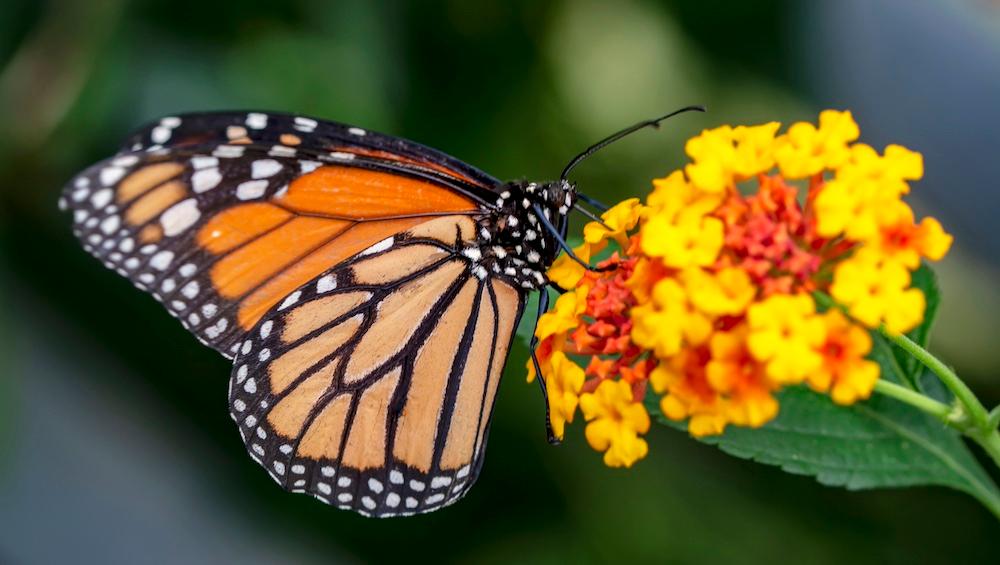Monarch Butterflies Are Beautiful, but Are They Deadly? You Might Be Surprised
Published Jan. 2 2024, 3:17 p.m. ET

The Gist:
- Monarch butterflies eat a poisonous plant called milkweed.
- Monarchs don't pose a danger to humans but the same can't be said for pets.
- Luckily, the poison in question isn't typically deadly if you act quickly.
When you think of butterflies, poison may not be the first thing that comes to mind. However, these winged insects can be more dangerous than they appear at first glance. Some species have developed ways to protect themselves from predators, including being deadly to eat. But are Monarch butterflies poisonous? At first glance, it wouldn't seem so.
For many poisonous beings in the wild, like poison dart frogs, their danger isn't a secret. They have brightly colored skin that indicates you shouldn't get too close. But even though they have brightly colored wings, Monarchs don't have these typical neon shades. And they land on people all the time with no problem. So, what's the truth?

Are Monarch butterflies poisonous to humans?
Nope. While Monarchs are poisonous to predators like birds, there's no evidence that they are dangerous to humans. These butterflies aren't as bright as poison dart frogs, but their vivid orange wings indicate to anything looking to eat them that they aren't safe. The reason they are poisonous is all about their diet.
According to Poison Control, Monarch butterflies only eat milkweed plants and need them to lay their eggs. Each part of the plant contains a toxin called cardiac glycoside. If a human consumes milkweed in a large enough amount, symptoms can develop, including stomach pains, nausea, vomiting, confusion, diarrhea, and feeling weak.
If the poisoning is severe enough, people can experience symptoms like seizures and issues with the heart. In short: humans can interact with monarch butterflies, but need to stay far away from milkweed plants!
Can the same be said for dogs? As it turns out, Monarch butterflies have a much more negative effect on our furry friends. And if pet parents aren't careful, the situations can be deadly.

Are Monarch butterflies poisonous to dogs?
Yes, unfortunately, Monarch butterflies are poisonous to dogs. National Geographic Kids says that if an animal eats these insects, it could make them sick. But luckily, it shouldn't be bad enough to kill them. Then, pups will know not to try to eat these winged creatures again.
For dogs in particular, Healthy Paws Health Insurance says exposure to these plants includes symptoms like:
- Drooling
- Vomiting
- Dilated pupils
- Tremors
Milkweed is also dangerous to animals. Poison Control said they can experience seizures and have difficulty walking after grazing on the plant. At the very worst, ingesting milkweed could kill an animal. Humans and animals are also in danger if they come into contact with milkweed sap, which can irritate the eyes and skin.
If your pet has eaten or come into contact with a poison, call the Pet Poison Helpline in the U.S. at (855) 764-7661 immediately. There will be a $59 fee but it's possible to have that covered by pet insurance. If you or another human has been poisoned in the country, 800-222-1222 is available 24/7.